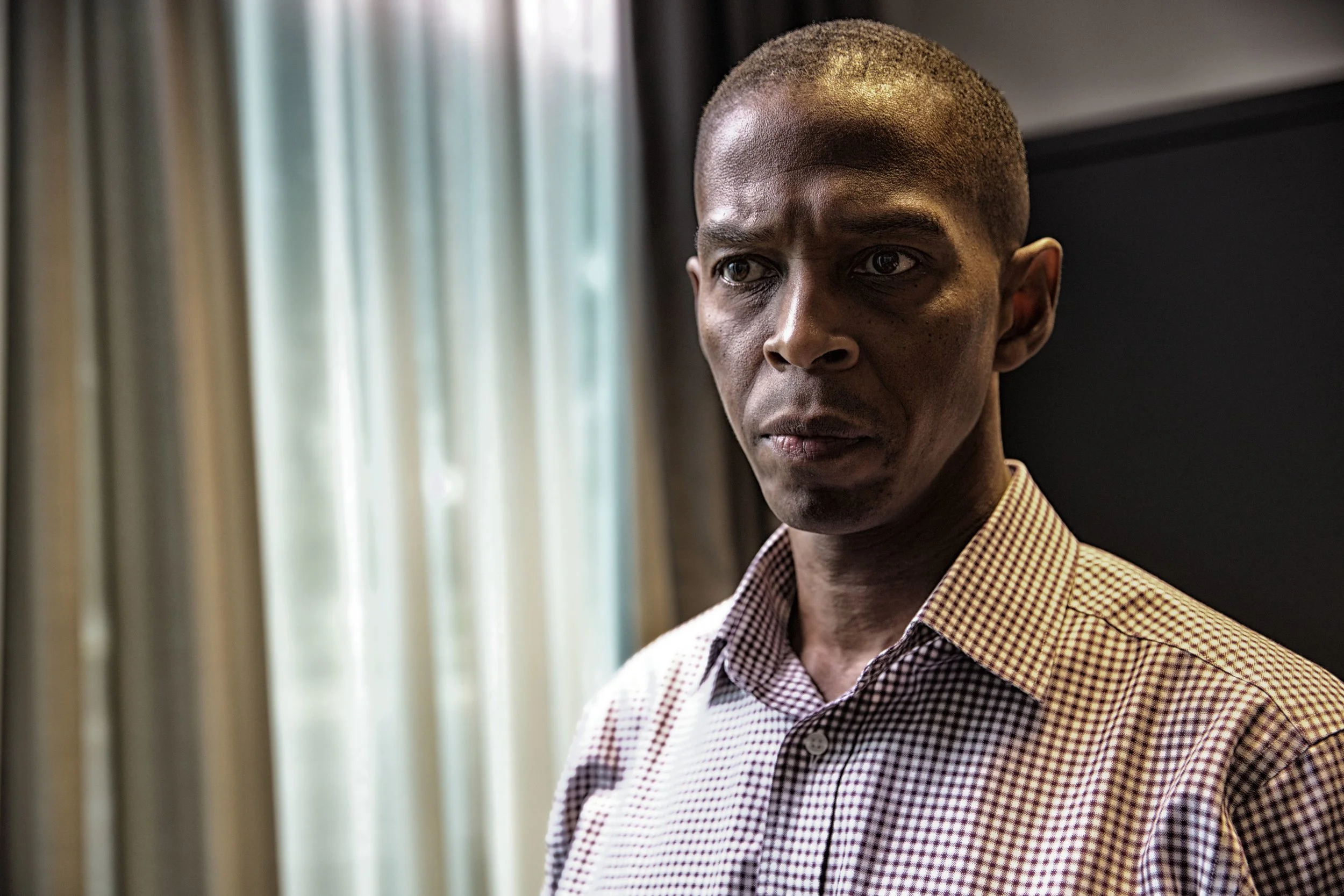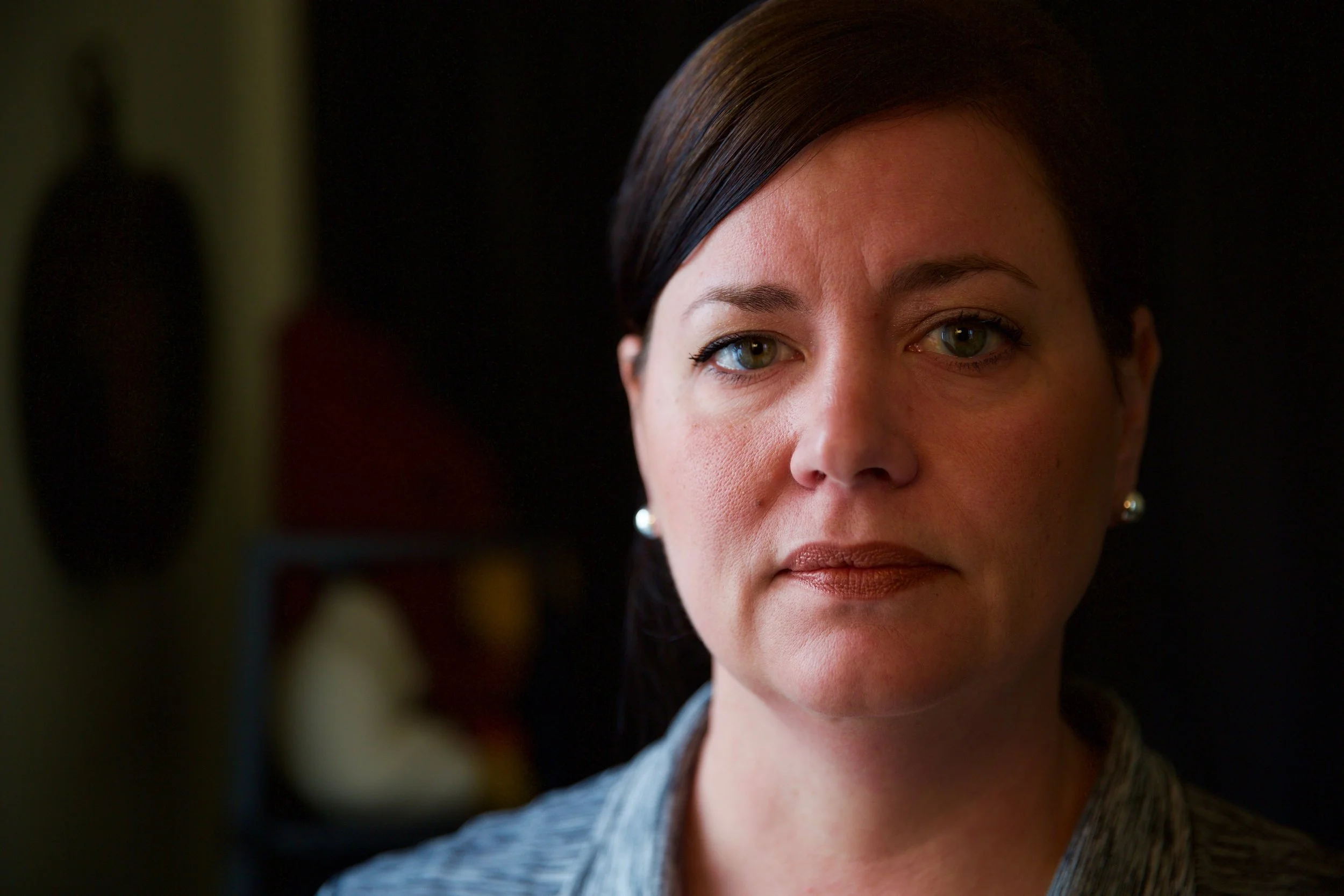Richmond Justice
STORIES + PORTRAITS
Patricia | November 18, 2016
Patricia Michelsen-King was born in Colombia and grew up speaking Spanish and English. She has served as a Spanish-language court interpreter in the United States for 30 years. As a Spanish instructor at VCU and as an independent consultant, she has trained hundreds of others to be court interpreters in 36 states. Patricia serves on advisory councils to improve the testing and certification of court interpreters in Virginia and across the country.
Too often in the justice system, we don’t hear the voices of people who don’t speak English. If we believe in due process, then we must ensure a level playing field. We’re not talking about giving non-English speakers an unfair advantage. We’re talking about equal access, about making sure everyone’s voice is heard. And right now, we’re not only losing defendants’ voices, but also the voices of victims and witnesses.
Without the support of a court interpreter, there are so many opportunities for misunderstandings and mistakes during interviews, hearings, and trials. A defendant who speaks some English may do well on the stand during direct examination, because they’ve practiced and know which questions to expect. But during cross-examination, there’s often a linguistic breakdown. Lawyers ask questions in specific, purposeful ways that require a precise understanding of the English language. The defendant may have trouble answering the prosecutor’s questions, and as a result, the perception of the judge or jury might be, “Hmm, he’s hiding something. He’s making mistakes.” But the problem is that the person is having trouble understanding.
“We’re not only losing defendants’ voices, but also the voices of victims and witnesses.”
By law, non-English-speaking defendants are entitled to a court interpreter during criminal cases. But the same isn't true in civil cases. While statutes vary by state, generally a judge decides whether to bring a court interpreter into a civil case—even though civil cases also involve extremely vulnerable situations. Think about the potential importance of a court interpreter in a landlord-tenant case, for example, where the defendant is at risk of eviction. Or in custody cases, when parents can lose their children.
The process of hiring court interpreters tends to be ad hoc and negligent. I’m amazed that some judges and attorneys feel that it’s ok to appoint interpreters who aren’t certified. Family members are called on to be interpreters. Children are called upon. What’s needed is a neutral professional—someone who not only speaks two languages, but also is trained in interpretation and who understands interpretation ethics.
Interpreters can’t give advice. They can’t edit the defendant’s response. They can’t offer opinions. And they must translate every utterance made by the defendant. Everyone—defendant, attorney, prosecutor, judge, witness, and interpreter—should hear the same trial. This means that the interpreter must also relay emotion. If a question is asked aggressively, then the interpreter must use the same tone. If the defendant is humble or sad or indignant, then that must be reflected.
Unfortunately, I’ve seen many cases where these fundamental standards aren't met. Just two days ago, I was in Richmond Circuit Court interpreting for an attorney who was interviewing her client—the defendant in the case. The attorney didn’t speak Spanish, and the defendant didn’t speak English. At the end of the interview, I handed the attorney my card and told her to get in touch if she needed help interpreting during trial preparation. She said, “That’s ok, I use José.” I asked, “Who’s José?” It turns out that José is the defendant’s brother. And José is a witness in the case. I asked, “Is he certified?” She said he wasn't. I asked her, “How do you know that José is interpreting accurately?” She said, “I took a year of Latin in high school, and I took a year of French in college, so if something was terribly wrong, then I would know.” This attorney was an older lady—her days of studying French and Latin were decades past. I was horrified. It’s unethical to employ a family member who is not neutral and does not have the understanding of legal proceedings necessary to interpret, and negligent of the attorney to choose this path. As a result, this defendant did not receive proper counsel.
This happens all across Richmond. In Manchester, I saw an attorney who spoke some Spanish note that the court interpreter did not do a good job. The trial audio had been recorded, so the attorney asked the judge to hire a federally-certified interpreter to write a transcription of exactly what was said and how it was interpreted. Through this transcription, we learned that at one point the defendant said in Spanish, “I went to the table to chat, and when I went outside they attacked me.” In Spanish, the word for chat is “platicar.” The interpreter was unsure of how to translate “platicar," so she should have said to the judge, “Your Honor, I need to clarify a word.” Instead, she said on record, “I went to the table to… to… to… start trouble, and when I went outside they attacked me.” Despite this critical error, the same interpreter continues to be hired.
“We rarely hear complaints about an interpreter, because the interpreter is often the only person in the courtroom who speaks both languages. No one realizes what’s being left out or stated incorrectly.”
That attorney in Manchester was unusual in his language skills. In general, we rarely hear complaints about an interpreter, because the interpreter is often the only person in the courtroom who speaks both languages. No one realizes what’s being left out or stated incorrectly. The official court transcript records only what is said in English—so unless the trial audio is recorded, and that's rare, then an appeal won’t go anywhere.
I became a pioneer in this field because I recognized the inequity that non-English speakers face. And right now, with the political climate as it is, it’s so important to have qualified professionals involved. It’s similar to the importance of hiring a professional stenographer to transcribe a trial. The judge wouldn’t come into the courtroom and ask, “Does anyone here type quickly?” We must have higher standards.
To be a qualified interpreter, you must study, you must train, and then you must pass a test. But Virginia is the only state—the only one—in which certification is voluntary. Some courts make a point of hiring only state-certified interpreters, but not all. It’s difficult to find state-certified interpreters in rural areas. And some localities try to save money by hiring non-certified interpreters.
The way I see it, immigrants are a gift to our community. They work hard, they pay taxes, and they buy things, which helps the economy. Their children go to school and then use their education to lift the family out of poverty and into the middle class. Yet status-quo interpretation practices cause many immigrants to distrust our judicial system. We have the best system of justice in the world. But we must make sure that everyone can access it equally.
— interviewed November 17, 2016
















